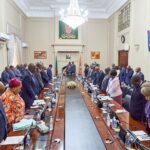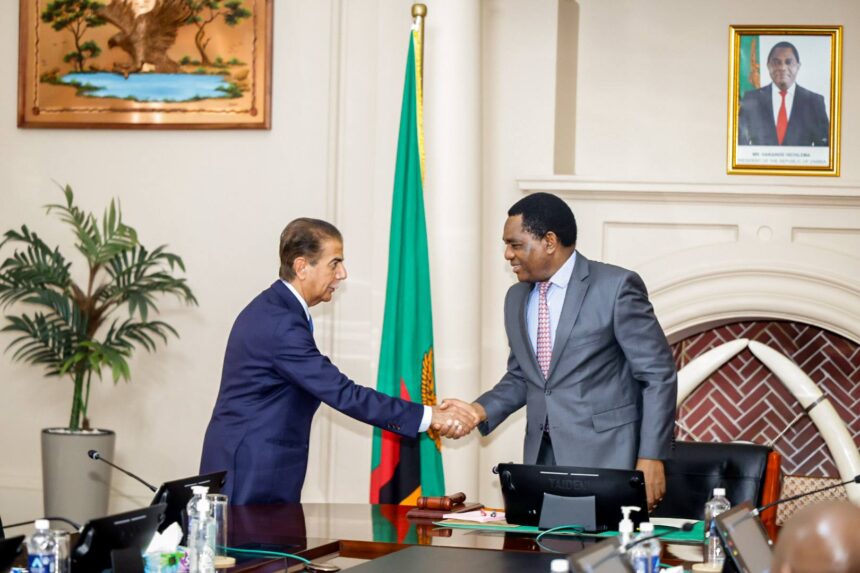Zambia is set to enhance its status as a key transport and logistics hub in Southern Africa following a proposed $300 million investment by DP World, a leading global port operator. The ambitious initiative, which will begin with an initial $50 million injection, will be implemented through a Public-Private Partnership (PPP) with Zamcargo Limited, a subsidiary of the Industrial Development Corporation (IDC).
The agreement was sealed following a meeting between Zambian President Hakainde Hichilema and DP World’s Executive Vice President Suhail Al Banna at State House. During the discussions, Mr. Al Banna reaffirmed DP World’s commitment to not only generating profits but also fostering economic growth and improving local livelihoods through infrastructure development.
A Strategic Vision for Regional Trade
President Hichilema emphasized Zambia’s unique advantage as a land-linked nation with the potential to become a crucial player in regional trade. He highlighted DP World’s global logistics expertise as a valuable asset in facilitating Zambia’s access to international markets, boosting trade efficiency, and expanding export and import capabilities.
A key aspect of this initiative is the development of dry port facilities at Walvis Bay in Namibia and Dar-es-Salaam in Tanzania. The President stressed the importance of these ports in improving Zambia’s trade infrastructure, enabling seamless cargo movement, and reducing costs for businesses.
“This initiative aligns with our broader vision of transforming Zambia into a major transport and business hub in Southern Africa,” President Hichilema stated.
Economic Growth and Infrastructure Development
The partnership is expected to stimulate economic growth by leveraging Zambia’s strategic location and natural resources. By enhancing trade infrastructure, the project will create employment opportunities, attract further investments, and position Zambia as a critical transit route for regional and international trade.
While the announcement has been met with optimism in some quarters, others have expressed concerns about transparency, the impact of foreign investments on Zambia’s economy, and the actual implementation of such projects. Some citizens have called for an open tender process to ensure fairness and avoid potential monopolies. Others have questioned whether the $300 million investment is sufficient to make Zambia a truly competitive transport hub.
Despite the mixed reactions, the government remains confident that this initiative will lay the foundation for long-term economic benefits. The coming months will be crucial in determining how efficiently the partnership is implemented and whether it delivers on its promises of economic transformation.






